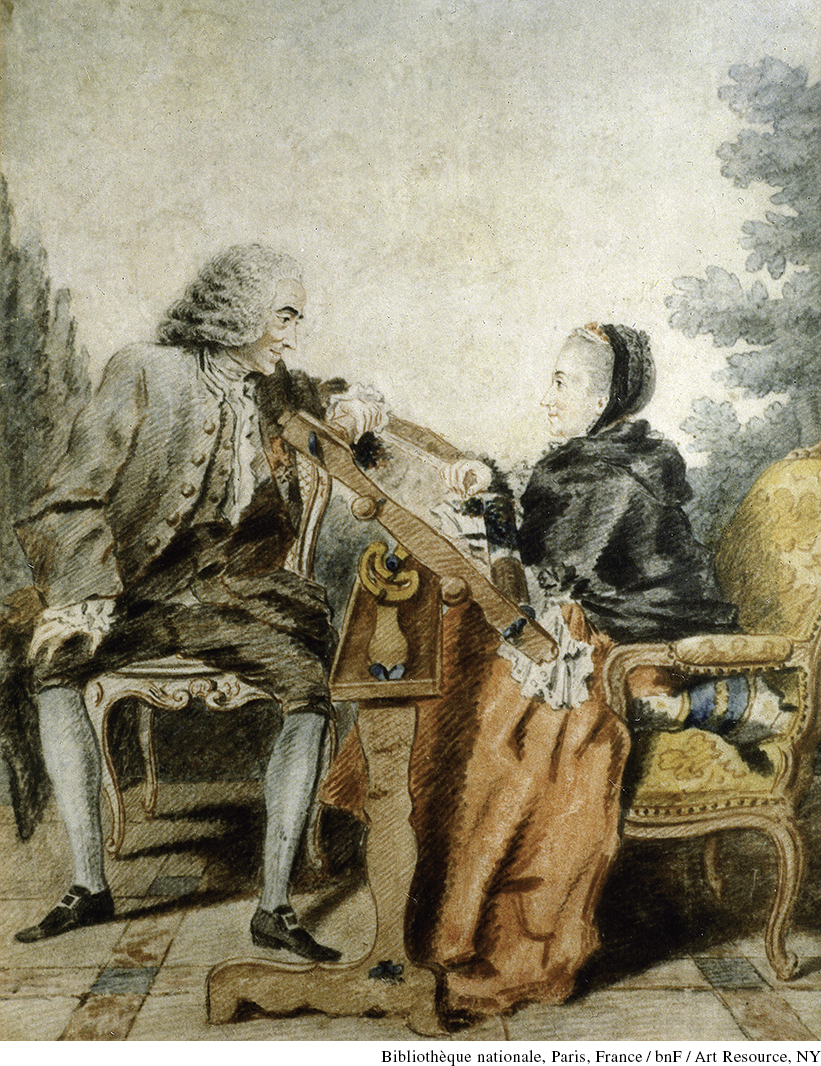Popularization of Science and Challenges to Religion
Printed Page 566
Important EventsPopularization of Science and Challenges to Religion
The writers of the Enlightenment glorified the geniuses of the new science and championed the scientific method as the solution for all social problems. By 1700, mathematics and science had become fashionable topics in high society, and the public flocked to lectures explaining scientific discoveries. (See “Terms of History: Progress.”)

As the prestige of science increased, some developed a skeptical attitude toward attempts to enforce religious conformity. Pierre Bayle (1647–1706), a French Huguenot refugee from Louis XIV’s persecutions, launched an internationally influential campaign against religious intolerance from his safe haven in the Dutch Republic. His News from the Republic of Letters (first published in 1684) bitterly criticized the policies of Louis XIV and was quickly banned in Paris and condemned in Rome. After attacking Louis XIV’s anti-Protestant policies, Bayle took a more general stand in favor of religious toleration. No state in Europe officially offered complete tolerance, though the Dutch Republic came closest with its tacit acceptance of Catholics, dissident Protestant groups, and open Jewish communities. In 1697, Bayle published his Historical and Critical Dictionary, which cited all the errors and delusions that he could find in past and present writers of all religions. Even religion must meet the test of reasonableness: “Any particular dogma, whatever it may be, whether it is advanced on the authority of the Scriptures, or whatever else may be its origins, is to be regarded as false if it clashes with the clear and definite conclusions of the natural understanding [reason].”
Bayle’s insistence on rational investigation seemed to challenge the authority of faith. Other scholars challenged the authority of the Bible by subjecting it to historical criticism. Discoveries in geology in the early eighteenth century showed that marine fossils dated immensely further back than the biblical flood story suggested. Investigations of miracles, comets, and oracles—like the growing literature against belief in witchcraft—urged the use of reason to combat superstition and prejudice. Defenders of church and state published books warning of the new skepticism’s dangers. The spokesman for Louis XIV’s absolutism, the bishop Jacques-Bénigne Bossuet, warned that “reason is the guide of their choice, but reason only brings them face to face with vague conjectures and baffling perplexities.” Human beings, the traditionalists held, were simply incapable of subjecting everything to reason, especially in the realm of religion.
State authorities found religious skepticism equally unsettling because it threatened to undermine state power, too. The extensive literature of criticism was not limited to France, but much of it was published in French, and the French government took the lead in suppressing the more outspoken works. Forbidden books were then often published in the Dutch Republic, Britain, or Switzerland and smuggled back across the border to a public whose appetite was only whetted by censorship.
The most influential writer of the early Enlightenment was a Frenchman born into the upper middle class, François-Marie Arouet, known by his pen name, Voltaire (1694–1778). Voltaire took inspiration from Bayle, once giving him the following tongue-in-cheek description: “He gives facts with such odious fidelity, he exposes the arguments for and against with such dastardly impartiality, he is so intolerably intelligible, that he leads people of only ordinary common sense to judge and even to doubt.” Voltaire’s tangles with church and state began in the early 1730s, when he published his Letters Concerning the English Nation (the English version appeared in 1733), in which he devoted several chapters to scientist Isaac Newton and philosopher John Locke and used the virtues of the British as a way to attack Catholic bigotry and government rigidity in France. He spent two years in exile in Britain when the French state responded to his book with an order for his arrest.
Voltaire also popularized Newton’s scientific discoveries in his Elements of the Philosophy of Newton (1738). The French state and many European theologians considered Newtonianism threatening because it glorified the human mind and seemed to reduce God to an abstract, external, rationalistic force. So sensational was the success of Voltaire’s book on Newton that a hostile Jesuit reported that “all Paris resounds with Newton, all Paris stammers Newton, all Paris studies and learns Newton.” Before long, Voltaire was elected a fellow of the Royal Society in London and in Edinburgh as well as being admitted to twenty other scientific academies. Voltaire’s fame continued to grow, reaching truly astounding proportions in the 1750s and 1760s.